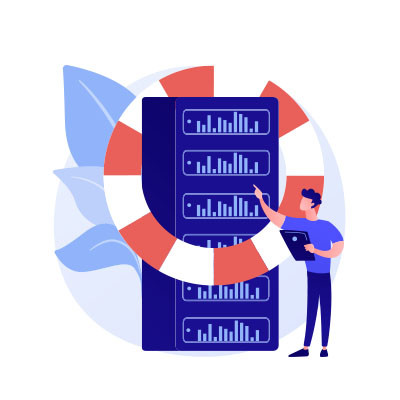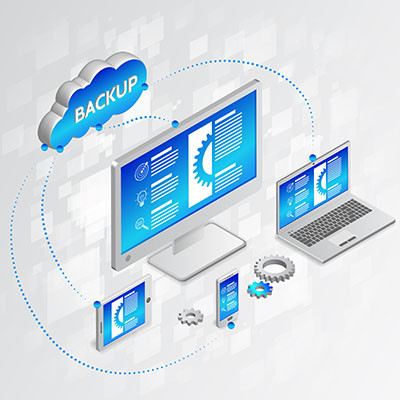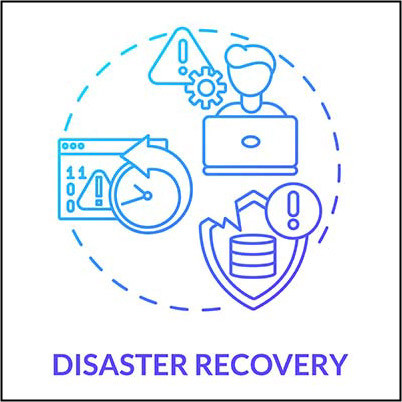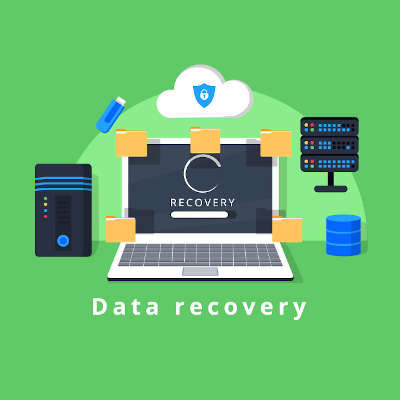In today’s digital workplace, data backup and disaster recovery are critical components that demand strategic attention. We specialize in providing these services to SMBs, and we recognize the unique challenges that surface on a day-to-day level. Today, we’d like to go into the financial significance of investing in data backup and disaster recovery, with a particular focus on how our services can contribute to your company’s fiscal resilience.
Accucom Blog
Technological innovation can be exciting, but one topic that is decidedly unsexy with technology is data backup—at least, from an excitement point of view. More businesses are demanding greater data security and redundancy, which is in turn forcing developers to innovate and create better products that can give consumers and enterprises what they need. Let’s look at three of the more interesting features of these up-and-coming data backup solutions.
Today’s businesses need a data backup, and just copying over data to another place every so often isn’t enough. Modern businesses need a comprehensive data recovery strategy in place to protect themselves from potential data loss in the event of a disaster. Let’s go through why it is critical to formulate one early on, and how to balance its maintenance with everything else your business demands.
Data backup is a critical part of any successful business, and, because it’s so simple, it may actually be overlooked. This week, we’ll walk you through the proper steps for making sure your organization has a successful data backup solution so if a situation arises and you need it, you’ll have it ready to recover and not be exasperated to find out that your business is in deep trouble.
How often do you think about your business’ future? If you are a good business owner, chances are your hopes and aspirations for the future are informing your current business practices, but if not, we have news for you. Even something as simple as a hardware failure can be enough to derail operations bad enough that you may not be able to recover—especially if you are unprepared for the data loss that could ensue.
Even when everything is going well, running a business can be challenging—all of that is to say that things are especially difficult when everything starts to go wrong, particularly in the realm of business continuity. While nobody likes to imagine the worst-case scenario, we always like to say that imaging the worst-case scenario can help you prepare for it, and it can take the sting away from dealing with it.
You may have seen us use the term “redundant” on this blog often, and if you are not necessarily familiar with how it might be used in the context of business technology, we understand how you could misconstrue the word in a negative light. However, redundancy is one of the most important concepts to understand in business technology, and it’s key to your business’ continued success.
One of the most important solutions for a small business to implement is a data backup and disaster recovery system. It is a crucial element of any business continuity plan, yet many organizations fail to implement one in an appropriate manner. Let’s discuss three of the best reasons you must consider data backup and disaster recovery now before it’s too late.
When we discuss business continuity, the generalization “disaster” could mean just about anything that halts normal business operations. How does your organization respond to an actual disaster, one that can potentially destroy your business completely? Let’s take a look at some of the ways your organization can prepare for these circumstances to keep your organization from an unfortunate demise.
Your business is not unique in the sense that it stores and transmits data during its day-to-day routines. Whether it’s financial information for your clients or employee records, it is more than likely that your business holds some kind of critical data that your operations rely on throughout the workday. Would your operations be able to recover from a sudden loss of data?
Data backup is a must-have for every business, but it isn’t enough to just copy your data. You will need to have a data recovery strategy in place to ensure that your business can effectively respond after a data loss incident. Today, we’ll take a look at why considering your recovery strategy early is important, and how to prioritize it with everything else going on with your business.
Regardless of what you do, it’s a good bet that your business creates a lot of data. Some of which is completely essential to its sustainability. In order to protect it against data loss and disaster, you will need data backup. Today’s best options leverage cloud computing to ensure redundancy and availability. Today, we’ll take a look at data backup and how choosing one that incorporates cloud services can actually save your business.
Know it or not, your business takes in and creates a lot of data. Most of this data, like most items and information, isn’t worth much. Some of it, however, is crucial to your business’ ability to operate. If a situation comes along where you are faced with the prospect of losing your data, it will be much better to have a backup plan in place than not.
I think we’ve made it pretty clear that your organization needs to back up its data. We’re continuously explaining that if you don’t back up your data, and have a plan to get it back quickly, you are really testing the foundations of your business. After all, in today’s business climate, data is a very big deal.
Data backup is an integral part of any business continuity strategy, but there are so many different parts to it that it’s not surprising some slip through the cracks if left unchecked. If you’re not taking measures to keep disasters from derailing operations, you could lose everything you’ve worked so hard to achieve. We’ll discuss the critical parts of a data backup and disaster recovery system, including how and why you should test your backups periodically.
A justifiable fear drives the data backup market. With all the emerging threats coming from the web, it’s hard to imagine that any company that uses the web for more than just email wouldn’t have a strategy in place to quickly replace lost data. A high percentage of small businesses fail as a result of data-loss incidents so when it comes to the continuity of your business, how you recover your data can be as important as protecting it in the first place.




















